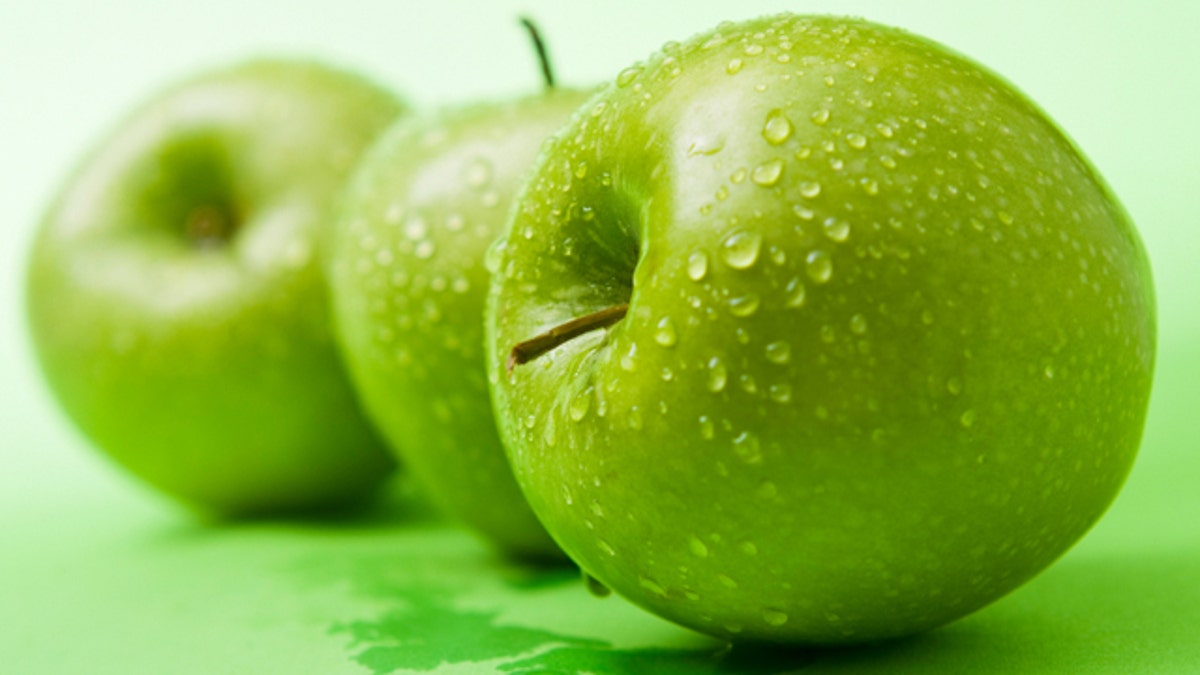
Ah, glorious spring. Birds are happily chirping, plants are sprouting, and that mountain of snotty tissues by your desk is growing exponentially—at least if you have allergies. But before you restock your supply of allergy meds and tissues, try rethinking your diet instead. (Take back control of your eating—and lose weight in the process—with our 21-Day Challenge!)
"When someone suffers from seasonal allergies, her body perceives allergens like grass, pollen, dust, and dander as dangerous foreign substances and launches an immune response," said Dr. Deborah Gordon.
The result: A flood of antibodies and histamine is released into the bloodstream, causing all those icky symptoms. A-choo! (Don’t make things harder on yourself by doing these 10 things that make your allergy symptoms worse.)
The good news: The right lineup of anti-inflammatory, antioxidant-rich, and probiotic-packed whole foods can help temper your body's response to these allergens and help keep sneezes at bay.
Here are the ultimate eats to quash symptoms so your spring won't (literally) blow.
Coconut milk yogurt
Probiotics, the good gut bacteria you've been hearing so much about, don't just make your digestive system happy, they can also crush allergic reactions. A study in the journal Clinical and Experimental Allergy found that allergy sufferers who downed a probiotic drink had significantly lower levels of the antibodies that trigger allergy symptoms.
"Probiotics are like a wise friend, helping our bodies to figure out when we should be upset—or release these antibodies—and when we might be better served to calm down," Gordon said. (Lower your blood pressure naturally with these 13 power foods.)
But before you start downing probiotic-packed yogurt, kefir, or fermented veggies like sauerkraut, consider this: In some individuals, certain proteins in dairy as well as the natural histamines present in fermented foods may actually exacerbate allergy symptoms—so it may take a little trial and error to see which camp you fall into. Not up for that kind of experimentation? You can always opt for a supplement (just be sure to talk to your doctor before starting a new supplement).
Apples
Apples are rich in quercetin, a bioflavonoid also found in onions, garlic, cabbage, berries, and cauliflower that helps prevent your body's immune cells from releasing histamine. Putting the brakes on histamine lessens your symptoms, said Jonathan Psenka, ND, a naturopathic physician practicing in Phoenix and author of “Dr. Psenka’s Seasonal Allergy Solution.” What's more, another study found that pregnant women who ate apples and fish during pregnancy reduced the risk of their children developing both asthma and allergies.
Strawberries
The vitamin C in strawberries is not only an immune system booster, it helps put the kibosh on histamine, a neurotransmitter that causes your runny nose, itchy eyes, and sneezing fits. One study found that vitamin C supplementation decreased histamine levels by 38 percent, while other studies have shown that vitamin C deficiency can send blood levels of histamine soaring.
"We all make the enzyme diamine oxidase [DAO] to keep the histamine levels at a tolerable level," Gordon said. "Taking extra vitamin C, vitamin B6, zinc, and copper can all help with DAO synthesis." (Drop some extra berries into these 20 slimming, super-healthy smoothie recipes.)
Turmeric
The Indian spice has long been hailed for its anti-inflammatory properties, and research has found that curcumin, the active component in turmeric, can block the release of histamine to prevent allergy symptoms from developing.
"Curcumin has shown a powerful ability to inhibit all sorts of inflammation," Psenka said. "The higher your inflammation, the higher your potential for allergies."
Add turmeric to your morning scramble, smoothies, soups, and nut milk.
Pumpkin seeds
These are loaded with magnesium (just 1/4 cup of pumpkin seeds provides half of the daily requirement)—a mineral that relaxes muscles and helps open up airwaves so you can breathe easier. Animal studies have shown that magnesium deficiency can boost histamine levels. Other magnesium superstars include almonds, sunflower seeds, oatmeal, broccoli, leafy greens, and dark chocolate.
Wild Alaskan salmon
Eating salmon is one of the best ways to amp up your intake of omega-3 fatty acids, which can dial down the allergic response by keeping inflammation at bay. One German study published in the European Journal of Clinical Nutrition found that a high content of omega-3 fatty acids in red blood cells or in the diet was associated with a decreased risk of hay fever. Another study found that children from the Greek island of Crete who ate a Mediterranean diet (high in fish!) were less likely to develop allergy and asthma symptoms. Omega-3s are also linked to stronger hearts, boosted moods, and better memory. (And whatever you do, skip these 12 fish to never ever eat.)
More whole foods, less processed
You know you're better off eating whole, fresh foods than processed or fast foods. The latter are high in omega-6 fatty acids, pro-inflammatory fats that research has linked to allergies.
"Someone who eats processed foods can have too many omega-6s, which increase the general level of inflammation in his body, putting him at higher risk of allergy symptoms," warned Gordon.
Sticking with antioxidant-rich whole foods also means less refined carbohydrates and sugars, which can increase levels of inflammatory messengers called cytokines.








































